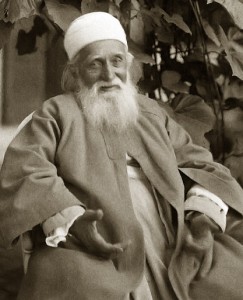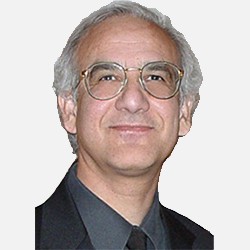The views expressed in our content reflect individual perspectives and do not represent the authoritative views of the Baha'i Faith.
As a sociologist, I have come to recognize Abdu’l-Baha’s book The Secret of Divine Civilization as a masterpiece in social and political theory.
Written in the 19th century regarding the question of the modernization of Iran, its vision still remains relevant today. The questions addressed by Abdu’l-Baha’s book have become even more urgent and applicable for humanity in the 21st century. Abdu’l-Baha’s vision offers a strikingly novel perspective for the creation of a new world order, qualitatively different from all other existing models of political theory.
An adequate reading of The Secret of Divine Civilization requires a dynamic perspective oriented simultaneously to both the specific conditions of Iran in the second half of 19th century, and the problems confronting humanity now. While The Secret of Divine Civilization was written in response to the specific conditions of Iranian society in the 19th century, its theoretical vision transcends the boundaries of both Iran and the 19th century—in fact, it is truly a work for all humanity and all seasons.
In this series of essays about Abdu’l-Baha’s historic text, I will first briefly discuss the purpose and the historical context of the writing of The Secret, locating its themes in the context of both the Iranian social and political situation, and the overall message of the Baha’i Faith. Then, I’ll attempt to explain the organization of Abdu’l-Baha’s treatise, and differentiate four levels of discourse in his work, including the controversy between religious traditionalism and atheist rationalism; and the critically important question of nationalism and globalism, which has become so crucial to any contemporary understanding of our world.
The context and purpose of The Secret
The Secret of Divine Civilization, one of the early writings of Abdu’l-Baha, occupies a unique theoretical and historical position among the Baha’i sacred writings. Unlike general Baha’i writings, Abdu’l-Baha addressed The Secret to the Muslim population of Iran. Written as an anonymous, unsigned text, he devoted The Secret to a sociological analysis of the conditions in Iranian society, and aimed that analysis at a general Baha’i model of development and modernity—transcending and combining the two opposing theories of conservative traditionalism and technocratic rationalism.
This remarkable book argues for a new approach to modernity and rationality which harmonizes science and spiritual values in the context of a historical and international approach to culture and society.
The Secret must be viewed simultaneously as an expression of the inspired vision of the Baha’i Faith on the one hand, and Iranian intellectual social and political discourse on the other. What makes this particular text unique is precisely the intersection of these two currents. The inspired character of The Secret implies that its message is qualitatively different from secular debates on the issue of social and economic development, and that its vision is not limited to the particular situation of 19th century Iran. On the other hand, it directly addresses the fundamental questions of modernity and development from an explicitly sociological point of view, offering specific solutions to the cultural, economic, political, spiritual, and moral chaos of the 19th century Iran. A similar chaos and confusion also bewilders our own generation in all different parts of the world.
Abdu’l-Baha was the son and successor of the founder of the Baha’i Faith, Baha’u’llah. Beginning in 1853, Baha’u’llah revealed a new divine message for humanity, bringing into being a Faith that spread around the world. Born in Iran but banished and imprisoned by the order of Iranian Qajar monarch Nasiri’d-Din Shah to the Ottoman empire, Baha’u’llah passed away in exile in 1892. In his writings, Baha’u’llah declared that humanity has now reached its collective age of adolescence and must strive to attain the stage of maturity. This coming of age of humanity, he taught, will be realized through fundamental spiritual, cultural, economic, and political transformations in the world.
Baha’u’llah’s message gives humanity clear guidance for this process of regeneration and reconstruction. For this reason, the vision of the Baha’i Faith does not simply offer moral guidance devoid of social and institutional relevance, nor is it only a sociological or political theory. On the contrary, it represents a holistic, global approach which links spiritual truth to individual life, collective institutions, and an emerging new world order:
The world’s equilibrium hath been upset through the vibrating influence of this most great, this new World Order. Mankind’s ordered life hath been revolutionized through the agency of this unique, this wondrous System—the like of which mortal eyes have never witnessed.
Immerse yourselves in the ocean of My words, that ye may unravel its secrets, and discover all the pearls of wisdom that lie hid in its depths. – Baha’u’llah, Gleanings from the Writings of Baha’u’llah, p. 136.
Baha’u’llah’s metaphysics is a metaphysics of love and unity. He affirmed three fundamental essential unities at different levels of being. First, he proclaimed the absolute unity of divine reality. The unity of divine reality, however, is beyond the capacity of human understanding and conceptual framework. Even the categories of oneness and plurality are incapable of expressing the unknowable divine unity. But this divine reality is the foundation and ultimate purpose of all beings including the humans. In other words, in a sense the being of humans is nothing but a reflection of that divine reality and a longing and love for recognition and attainment of God.

















Comments
Sign in or create an account
Continue with Googleor